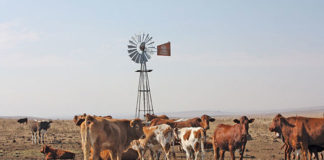“Considering South Africa is the 32nd largest economy in the world, we should be ranked in the top 30s. However, investors are deterred by policy and economic uncertainty,” economist Clem Sunter told Farmer’s Weekly. The recent Marikana tragedy has been bad for our international image, he added. “Investors don’t want this hassle or to cope with fairly aggressive workers and trade unions.”
SA still leads the Africa rankings, and its sophisticated banking system makes it the obvious starting place for companies wanting to get involved in Africa. But a few more incidents like Marikana will see investors opting for Nigeria or Ghana instead, said Sunter.
Competition
Mauritius is the second most competitive nation in Africa in the GCI, at 54th place. However, Sunter sees Nigeria, which jumped from 127th to 115th place, as SA’s most serious competition. “Nigeria is growing at 7% per annum while we are growing at 3%,” he said. “By 2020, Nigeria could overtake us as the biggest economy in Africa.
“This is a critical period to maintain our status in Africa by having policy certainty regarding issues such as nationalisation and easier laws for small businesses to stimulate entrepreneurial development.” Sunter’s sentiments were echoed by the South African Chamber of Commerce and Industry (SACCI) in its August 2012 Business Confidence Index (BCI).
Although the BCI ticked up by 4,1 index points from July to 95 in August, it was 3,6 points below the August 2011 reading.
South Africa’s economic growth increased by 3% year-on-year in the second quarter of 2012. Economic growth of 2,5% for the first half of 2012 was hampered by a decline in mining output, although agriculture made a positive contribution by growing by 2,6% year-on-year.
Flexibility
“Business flexibility is one of the strengths of the South African economy, but it must be supported by flexibility in the business environment broadly, and in the labour market in particular, if we are to see sustainable improvements in business confidence,” said the SACCI. “If the adverse trends in governance and discipline continue, SA as a destination for direct investment will diminish and result in a shrinking economy shedding employment opportunities.”
Sunter said the economy is dominated by a few big players, and ownership of the economy needs to be widened through fairly generous employee share ownership schemes. “It works in Israel with the kibbutz and some farmers in SA have done precisely this. For me, that’s the way to go,” he said.











